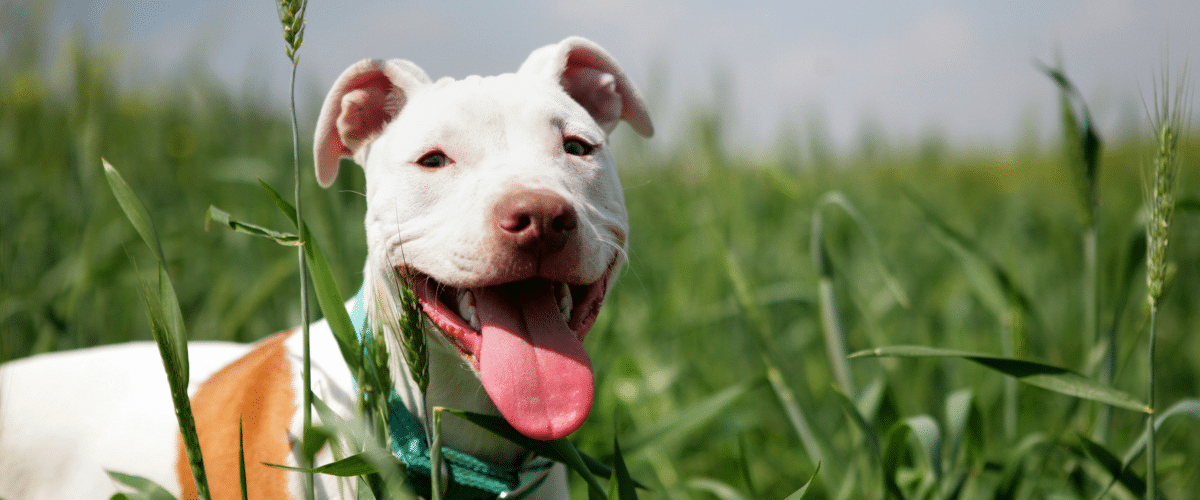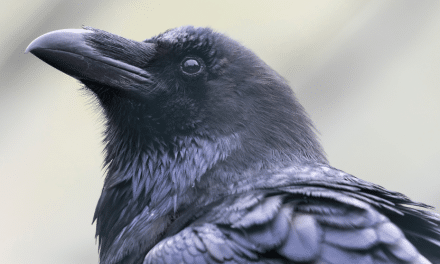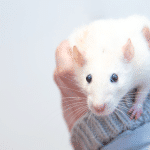By Sophia Di Giovanna, student of Animal Welfare & Society at University of Winchester
National Pit Bull Awareness Day occurs annually October 26. Since 2007, advocates hope that the celebration of this day sheds light on the true nature of this much-maligned breed.
In the early 1800s, the pit bull terrier was imported into the USA from the UK to fulfil the role of family protector, as well as for chasing away barn pests. In the UK, pit bulls were bred from a mixture of bulldog and terrier, mainly to address the UK’s vermin problem. But the dogs were also used in fighting, which was sadly common at the time. In the USA, the pit bull quickly became a popular choice of family pet, fondly considered “Nanny Dogs”: as the breed was known for its gentle and loyal nature, parents would often leave their young children with their pit bulls whilst they ran errands. Pit bulls were so popular that during WWII they were proudly proclaimed the mascot of America and so became “America’s Dogs”.
Unfortunately, with a predisposition for dense muscle mass and the capability of a strong bite, when dog fighting resurged in the USA during the 1980s, the loyalty of pit bulls was hugely exploited in this cruel sport. And so it is the actions of a few irresponsible people engaging in this cruelty that has so tarnished the reputation of this otherwise gentle breed. Nowadays, the stereotypical – and offensive – image of a pit bull owner is of a criminal using the dog for intimidation, due to the popular misconception of the dog’s ‘dangerous’ nature. However, a pit bull terrier can be a loving, docile family dog when treated properly by its owner.
Whilst the American pit bull terrier remains a popular family dog in the USA, in the UK pit bulls are one of several banned dog breeds, under Section 1 of the Dangerous Dogs Act 1991. The UK Government states that this breed specific legislation aims to protect the public. However, the situation is more complex: dog attacks have risen despite enactment of the Dangerous Dogs Act 1991, and Section 1 has been criticised as ineffective by animal welfare organisations and other experts.
The measures under the DDA include prohibiting pit bull ‘type’ dogs – there is no statutory definition of a pit bull type breed, and so a determination relies upon arguably imprecise measurements of certain physical characteristics of the dog. If a dog which appears to be of pit bull ‘type’ meets these measurements, they can be seized by officers even if good-natured. If owners wish to keep their dogs, they must go to court. If the owner can prove that their dog is not a threat to society (the burden of proof rests on the owner), they may keep their dog under certain strict conditions. These conditions include: registering their dog with the Index of Exempted Dogs; muzzling and keeping their dog on a lead at all times in public settings; holding third-party insurance; having their dog neutered and tattooed. The UK law also prohibits the rehoming, selling, or breeding of any banned breed or breed ‘type’, meaning many innocent dogs which find their way to animal rehoming centres are put to sleep despite them being perfect candidates for rehoming.
National Pitbull Awareness Day is an important day to recognise the true nature of the pit bull: gentle, loyal, docile, and loving. This breed’s reputation has suffered at the hands of humans who chose to exploit the breed for the qualities which also make it the perfect family pet. In 2018, one survey found that out of 4.4 million pit bulls in the USA, 1.8 million or 41% were looking for homes. This suggests that although pit bulls are more positively regarded in the USA than in the UK, much improvement is still needed in the treatment and public opinion of this misunderstood breed to ensure pit bulls only end up in the hands of reliable and responsible owners.


















